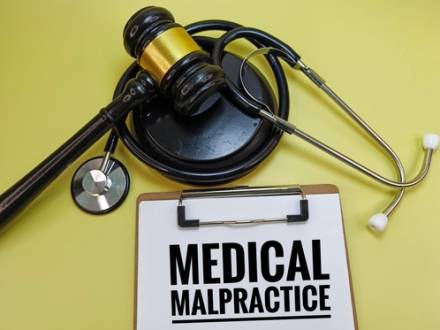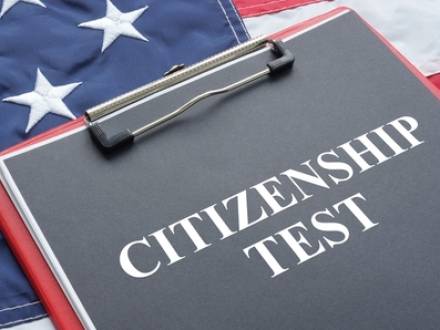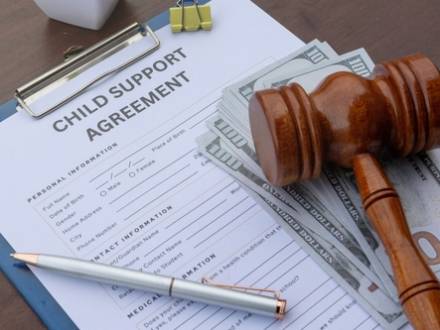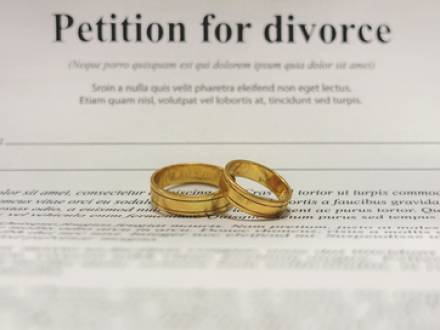Recent Blog Posts
Top Causes of Medical Malpractice Wrongful Death
 When you need to see a doctor, you deserve care from a safe, competent healthcare worker. Unfortunately, medical errors are one of the leading causes of preventable death in the United States. When a doctor, nurse, or hospital does not give a patient proper care, and that patient dies as a result, the surviving family may have the right to pursue a wrongful death claim.
When you need to see a doctor, you deserve care from a safe, competent healthcare worker. Unfortunately, medical errors are one of the leading causes of preventable death in the United States. When a doctor, nurse, or hospital does not give a patient proper care, and that patient dies as a result, the surviving family may have the right to pursue a wrongful death claim.
If your family has suffered the unimaginable because of negligent healthcare, you deserve answers and justice. At Mevorah & Giglio Law Offices, our Lombard, IL personal injury attorneys help clients pursue both. Call us today at 630-932-9100.
What Is Medical Malpractice Wrongful Death?
In Illinois, medical malpractice is when a healthcare provider does not follow the accepted standard of care. In wrongful death cases, that failure directly causes injury or death. A wrongful death lawsuit allows surviving family members to recover compensation. This may include medical bills, funeral costs, loss of income, and the emotional impact of losing a loved one.
When Can You Stop Paying Alimony in Illinois?
 Spousal maintenance, often called alimony, is meant to help a spouse who cannot support himself or herself after a divorce. However, for the spouse who is making alimony payments, a common question is when payments can stop. Under Illinois law, there are several circumstances when payments can be reduced or stopped.
Spousal maintenance, often called alimony, is meant to help a spouse who cannot support himself or herself after a divorce. However, for the spouse who is making alimony payments, a common question is when payments can stop. Under Illinois law, there are several circumstances when payments can be reduced or stopped.
If you are paying alimony and want to know when it can stop, you need to understand what the law allows and how to protect your rights. At Mevorah & Giglio Law Offices, our Naperville family law attorneys have many decades of experience helping clients change or end alimony orders. We will discuss your situation in clear terms and help you understand your options.
When Does Alimony End Automatically?
There are specific situations where Illinois law automatically ends a person’s obligation to pay maintenance:
Undocumented and Unpaid: Illinois Wage Theft Remedies
 While wage theft hits virtually every industry, the undocumented are often hit the hardest. Many immigrant workers put up with unpaid overtime and even withheld final paychecks because they fear retaliation or deportation if they speak up. Illinois law is very clear on this issue. Under the Illinois Wage Payment and Collection Act (820 ILCS 115), all workers are protected, regardless of immigration status.
While wage theft hits virtually every industry, the undocumented are often hit the hardest. Many immigrant workers put up with unpaid overtime and even withheld final paychecks because they fear retaliation or deportation if they speak up. Illinois law is very clear on this issue. Under the Illinois Wage Payment and Collection Act (820 ILCS 115), all workers are protected, regardless of immigration status.
Despite the constant flux in federal immigration laws, recent updates and enforcement initiatives have strengthened the rights of immigrants regarding wage theft, giving workers new ways to recover stolen wages, penalties, and even attorneys’ fees. An experienced Lombard, IL immigration attorney can help you determine whether you are the victim of wage theft, and, if so, the best way to recover those wages without risking removal.
Can I Sue if My Kid Was Hit By a Car Trick or Treating?
 Halloween is almost here again. The streets in Illinois will soon be filled with thousands of youngsters going door-to-door asking for tricks or treats. Although Halloween is an endearing and time-honored tradition for many families, being out on the sidewalks and in the streets after dark has serious risks. Some families find themselves facing tragedy at the end of the night.
Halloween is almost here again. The streets in Illinois will soon be filled with thousands of youngsters going door-to-door asking for tricks or treats. Although Halloween is an endearing and time-honored tradition for many families, being out on the sidewalks and in the streets after dark has serious risks. Some families find themselves facing tragedy at the end of the night.
If your child was hurt during Halloween activities, you have the right to answers. At Mevorah & Giglio Law Offices, our Lombard, IL pedestrian injury lawyers help parents of injured children pursue meaningful damages, making sure careless people are held accountable and preventing future incidents.
Do Trick or Treaters Have the Right of Way?
When children out trick-or-treating are on sidewalks, crossing the road at designated intersections, and otherwise following the rules, they have the right of way. Kids who are hurt through no fault of their own by careless drivers – especially people who are driving drunk or under the influence of drugs – have the right to seek damages in a lawsuit or an insurance claim.
USCIS Tightens the Citizenship Test: What the New Rules Mean
 If you are planning on applying for U.S. citizenship in the near future, you should know about a major change under U.S. Citizenship and Immigration Services (USCIS) as directed by the current administration. The civics test (known as the naturalization test) will become more difficult as of October 20th, 2025. Applicants will be required to answer more questions from more areas, and a higher number of correct answers will be required to pass the test.
If you are planning on applying for U.S. citizenship in the near future, you should know about a major change under U.S. Citizenship and Immigration Services (USCIS) as directed by the current administration. The civics test (known as the naturalization test) will become more difficult as of October 20th, 2025. Applicants will be required to answer more questions from more areas, and a higher number of correct answers will be required to pass the test.
The changes will restore a more difficult version of the 2020 test, while also creating new challenges. In particular, non-citizen immigrants who have limited resources to prepare for the test and speak English as a second language could find the new test problematic. More information about the new test can be found below. It can also be beneficial to speak to an experienced Bloomingdale, IL family immigration attorney who can answer any questions you may have.
When Do Moms Have to Pay Child Support?
 Many people assume that child support is something fathers always pay to mothers after a divorce or separation. But in reality, Illinois law does not look at gender when deciding child support. Mothers can be required to pay support just like fathers, depending on custody arrangements and each parent’s income.
Many people assume that child support is something fathers always pay to mothers after a divorce or separation. But in reality, Illinois law does not look at gender when deciding child support. Mothers can be required to pay support just like fathers, depending on custody arrangements and each parent’s income.
If you are a mother going through a divorce or facing a custody dispute, it is important to understand when child support applies. With over 175 years of combined experience, our client-focused Bloomingdale, IL child custody attorneys guide parents through these questions every day. We offer free consultations to help you plan your next steps.
How Child Support Works in Illinois
Illinois child support laws are found in the Illinois Marriage and Dissolution of Marriage Act (750 ILCS 5/505). Since 2017, the state has used an income shares model to calculate child support. This model adds up both parents’ incomes and divides support between them based on how much each one earns.
When Should I File My Personal Injury Claim in Illinois?
 If you are hurt in an accident, you need to juggle medical appointments, bills, missed work, and the pain of recovery. With so much going on, it can be hard to focus on legal deadlines. Unfortunately, Illinois law gives you only a limited time to file a personal injury lawsuit.
If you are hurt in an accident, you need to juggle medical appointments, bills, missed work, and the pain of recovery. With so much going on, it can be hard to focus on legal deadlines. Unfortunately, Illinois law gives you only a limited time to file a personal injury lawsuit.
If you wait too long, the court may refuse to hear your case, no matter how strong your claim is. At Mevorah & Giglio Law Offices, our team of Bloomingdale, IL personal injury lawyers is here to help you understand the deadlines and make sure everything is filed on time.
What Is the Statute of Limitations for Personal Injury Cases in Illinois?
A statute of limitations is the legal time limit for starting a lawsuit. In Illinois, most personal injury cases are addressed by 735 ILCS 5/13-202, which gives you two years from when the injury occurred to file suit. This two-year deadline applies to all types of injuries.
How an Illinois Divorce Affects Immigration Sponsorship
 Immigration and divorce can intersect in unexpected ways. In the state of Illinois – and across the United States – U.S. citizens and lawful permanent residents sponsor their spouses for green cards. There are many requirements to sponsor an immigrant spouse, along with ongoing financial obligations. But what happens when a couple with one sponsored spouse divorces?
Immigration and divorce can intersect in unexpected ways. In the state of Illinois – and across the United States – U.S. citizens and lawful permanent residents sponsor their spouses for green cards. There are many requirements to sponsor an immigrant spouse, along with ongoing financial obligations. But what happens when a couple with one sponsored spouse divorces?
Many couples are surprised to learn that divorce rarely ends the sponsor’s duty to financially support his or her immigrant spouse. Immigration sponsorship creates legal responsibilities that can outlast a marriage. Both parties may potentially face legal and financial consequences. To ensure your rights are protected as you plan your next steps. It is important that you speak to a knowledgeable Lombard, IL family immigration lawyer.
What Are the Requirements for a U.S. Citizen to Sponsor an Immigrant Spouse?
To sponsor an immigrant spouse, a U.S. citizen must be at least 18 years old, live in the United States, and meet specific financial requirements. The sponsor must demonstrate an income of at least 125 percent of the federal poverty level for his or her household size. Form I-130 must be filed to petition for the spouse, along with Form I-864, the Affidavit of Support.
When Can You Change a Divorce Settlement?
 When a divorce ends, many people think the settlement is final. In Illinois, however, certain parts of a divorce judgment can sometimes be changed later if you or your children’s situation has changed. If you are wondering whether you can modify your divorce settlement, it is important to know what can and cannot be done under Illinois law.
When a divorce ends, many people think the settlement is final. In Illinois, however, certain parts of a divorce judgment can sometimes be changed later if you or your children’s situation has changed. If you are wondering whether you can modify your divorce settlement, it is important to know what can and cannot be done under Illinois law.
At Mevorah & Giglio Law Offices, our Lombard, Illinois family law attorneys have over 175 years of combined experience helping clients figure out tough divorce issues. We pride ourselves on great communication and client-focused service, and we offer free consultations to discuss your specific situation.
What Parts of a Divorce Settlement Can Be Changed?
Not every part of a divorce settlement is open to modification. Once property division has been finalized, the court will not reopen it except in very rare cases, such as those involving fraud or hidden assets. However, the Illinois Marriage and Dissolution of Marriage Act (750 ILCS 5) allows modifications of issues that are ongoing, such as child support, child custody (legally called "allocation of parental responsibilities"), parenting time, and alimony.
Can I Sue if a Delivery Driver Hits Me in Illinois?
 Delivery trucks and food delivery cars are a common sight in Illinois, from Amazon and UPS vehicles to drivers working for DoorDash or Uber Eats. There is no denying that these services are convenient.
Delivery trucks and food delivery cars are a common sight in Illinois, from Amazon and UPS vehicles to drivers working for DoorDash or Uber Eats. There is no denying that these services are convenient.
However, they also raise questions about what happens when their drivers are involved in car accidents. If you were hit by a delivery driver, you may be wondering whether you can hold anyone responsible through a personal injury claim. A Naperville, IL delivery driver accident lawyer can explain your options and help you seek fair compensation.
Can I Sue a Delivery Driver Who Hit Me in Illinois?
As of September 2025, anyone in Illinois who causes a crash through careless driving can be held liable, including delivery drivers. Under the Illinois Vehicle Code 625 ILCS 5/11-601, drivers must use the same caution as everybody else to avoid accidents.
 English,
English,
 Spanish,
Spanish,
 Polish,
Polish,
 Urdu
Urdu












 Make a Payment
Make a Payment



